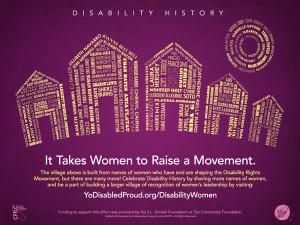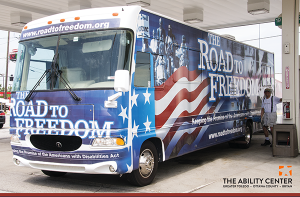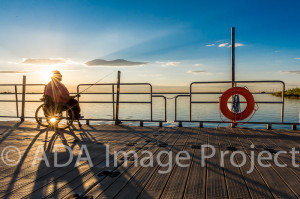
The village above is built from names of women who have and are shaping the Disability Rights Movement! Celebrate Disability History by sharing more names of women, and be a part of building a larger village of recognition of women’s leadership by visiting yodisabledproud.org/disabilitywomen
Source: Youth Organizing (YO!) Disabled and Proud
California’s Youth Organizing (YO!) Disabled and Proud celebrates its 4th annual Disability History week, October 13 – 17, 2014. This year’s disability history theme is centered around the contributions that hundreds of women with disabilities have made to our movement, “It Takes Women to Raise a Movement.”
Each year we develop a new poster that highlights our disability history theme. Our poster this year includes names of the many women with disabilities who have contributed to our movement in a variety of ways, but we know that it doesn’t include everyone and that’s where you come in. We invite you to tell us who we’re missing by coming to our site and emailing us. You are also welcome to share your favorite disability history story with us, tweet, Facebook and Instagram with our hashtag #DHW2014 and last, but not least support YO! Disabled and Proud by ordering a poster. Find out more at the YO! website.






